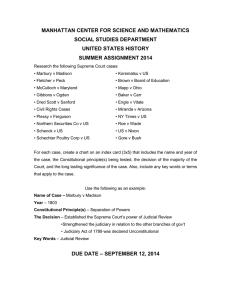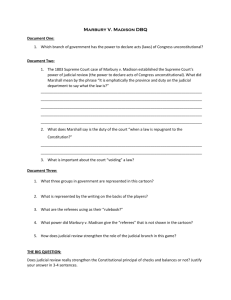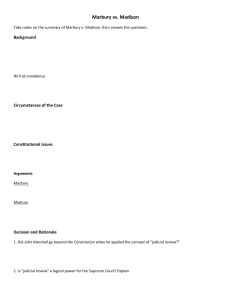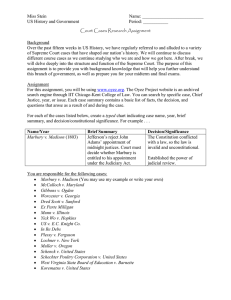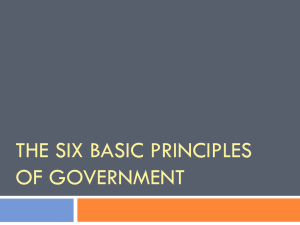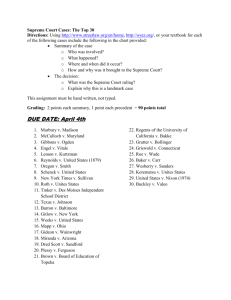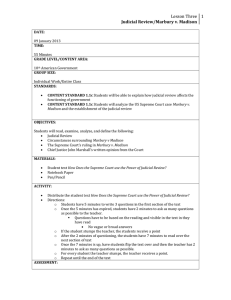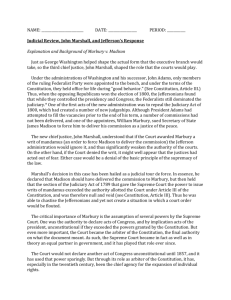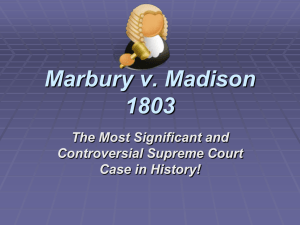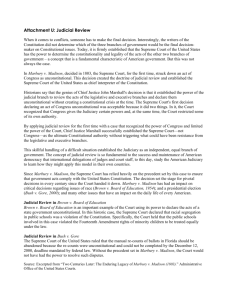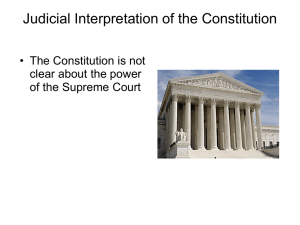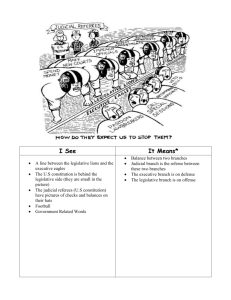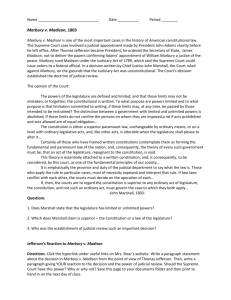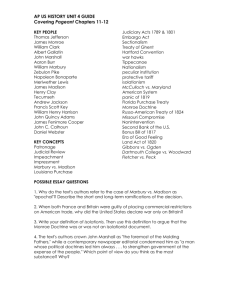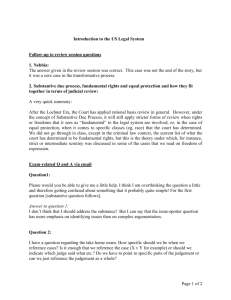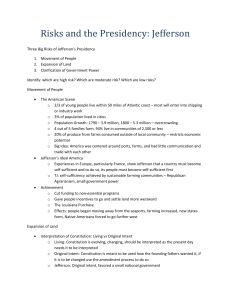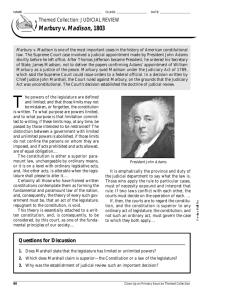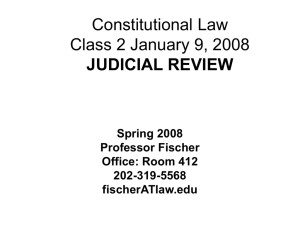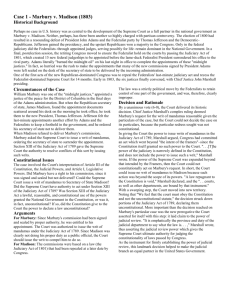Class Outline
advertisement
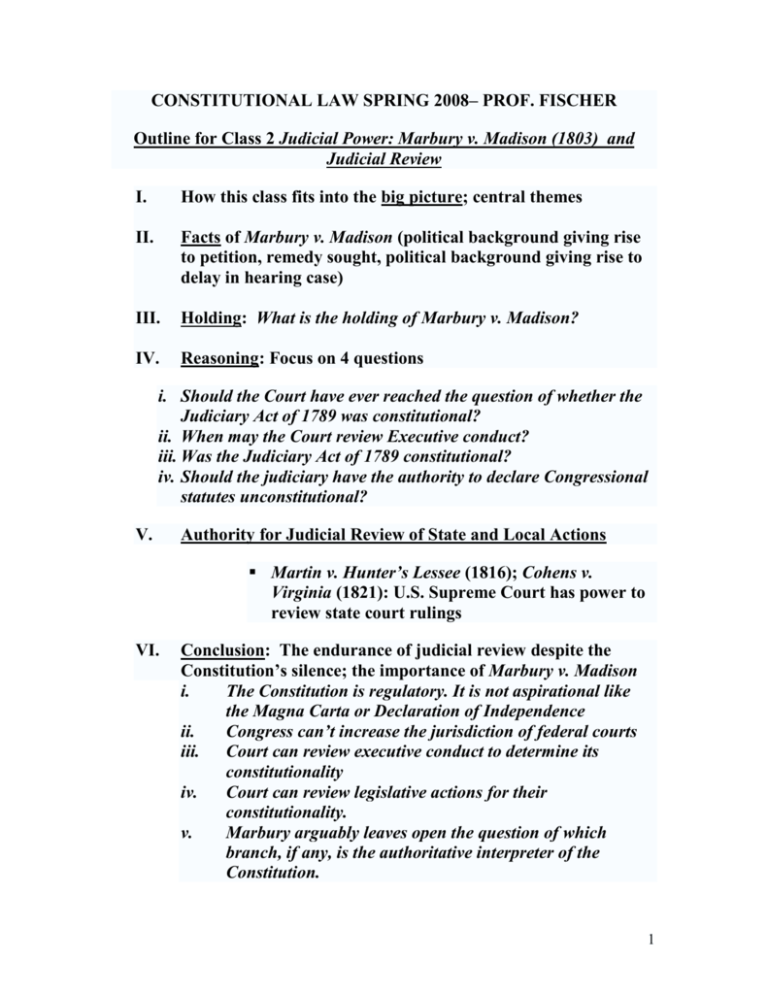
CONSTITUTIONAL LAW SPRING 2008– PROF. FISCHER Outline for Class 2 Judicial Power: Marbury v. Madison (1803) and Judicial Review I. How this class fits into the big picture; central themes II. Facts of Marbury v. Madison (political background giving rise to petition, remedy sought, political background giving rise to delay in hearing case) III. Holding: What is the holding of Marbury v. Madison? IV. Reasoning: Focus on 4 questions i. Should the Court have ever reached the question of whether the Judiciary Act of 1789 was constitutional? ii. When may the Court review Executive conduct? iii. Was the Judiciary Act of 1789 constitutional? iv. Should the judiciary have the authority to declare Congressional statutes unconstitutional? V. Authority for Judicial Review of State and Local Actions Martin v. Hunter’s Lessee (1816); Cohens v. Virginia (1821): U.S. Supreme Court has power to review state court rulings VI. Conclusion: The endurance of judicial review despite the Constitution’s silence; the importance of Marbury v. Madison i. The Constitution is regulatory. It is not aspirational like the Magna Carta or Declaration of Independence ii. Congress can’t increase the jurisdiction of federal courts iii. Court can review executive conduct to determine its constitutionality iv. Court can review legislative actions for their constitutionality. v. Marbury arguably leaves open the question of which branch, if any, is the authoritative interpreter of the Constitution. 1
